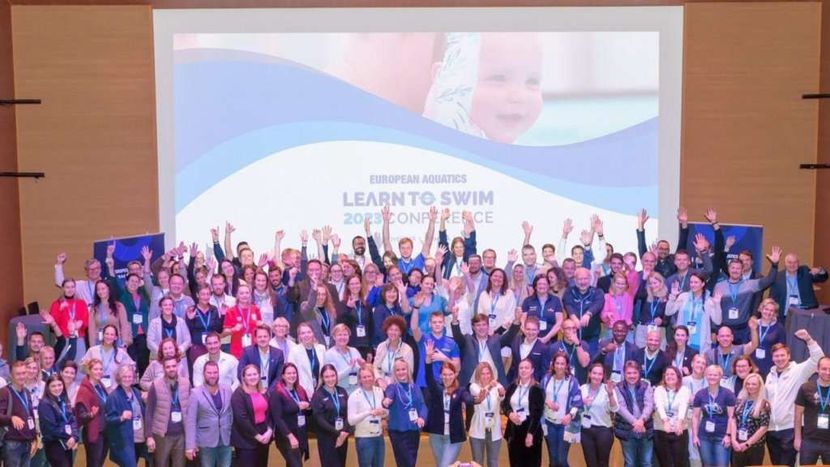
Wide-ranging presentations and an engaged aquatics community highlighted the first-ever European Aquatics Learn to Swim Conference.
In Jurmala, Latvia, a gathering of nearly 200 delegates from 28 nations, including Olympians, academics, and aquatic experts, marked a significant two-day event. European Aquatics concluded the historic conference by unveiling plans for a two-year pilot project as the next phase of its Learn to Swim strategy.
European Aquatics President Antonio Silva emphasized the project's significance in facilitating the exchange of best practices and challenges in learn to swim programmes. The aim is to communicate the framework and results to stakeholders and the public, ultimately leading to the creation of a Learn to Swim Manual and certification system.
Acknowledging the diversity within Europe, the European Aquatics President stated, "We are just the start of a long journey." With around 15 percent of Europe's population under the age of 14 and many countries lacking established systems, there's a unique opportunity to build a sustainable system. The conference showcased the wealth of knowledge and experience in national federations, emphasizing the importance of collaborative efforts to ensure more people learn to swim and feel secure in the water.
The event featured diverse perspectives on enhancing the teaching and promotion of swimming as an essential life skill. Breaking down cultural and social barriers emerged as a key discussion point, with BBC TV and radio presenter Summaya Mughal sharing her personal journey of overcoming cultural barriers to learn to swim at the age of 28 in 2022, chronicled in her award-winning podcast "Brown Gal Can't Swim." Mughal underscored the need to encourage more adults, especially those from communities where swimming is uncommon, to embrace the opportunity to learn.
Athlete guests passionately spoke about the life skills gained through mastering exercise, including self-confidence, resilience, discipline, time management, and teamwork. Five-time Olympian and World Aquatics Champion Peter Mankoc from Slovenia emphasized how swimming equips individuals to navigate life's challenges.
“Life has ups and downs and swimming gives you the skills to deal with the hard stuff, to have resilience, to learn to take responsibility and realise that nothing is tough to a swimmer,” said Mankoc.
Former World Aquatics Refugee Team member Yusra Mardini also spoke, recalling her inspirational journey from fleeing war-torn Syria to competing at the Rio 2016 and Tokyo 2020 Olympic Games.
“When I was going through some very challenging times, swimming was always the home I could take with me everywhere," said Mardini.
“It helped me to deal with trauma. It gave me strength and to have hope. If I wasn’t a swimmer I’m not sure if I’d be brave enough to jump into the water and save other people’s lives.”
The conference's final panel featured representatives from the federations of England, Wales, and Scotland (UK development), Hungary, Sweden, Estonia, and Slovenia. Despite differences in resources, history, and culture, it became evident that many basic principles were shared. A unified approach to Learn-to-Swim in Europe emerged as the correct strategy.
Contributing: European Aquatics Communication Department